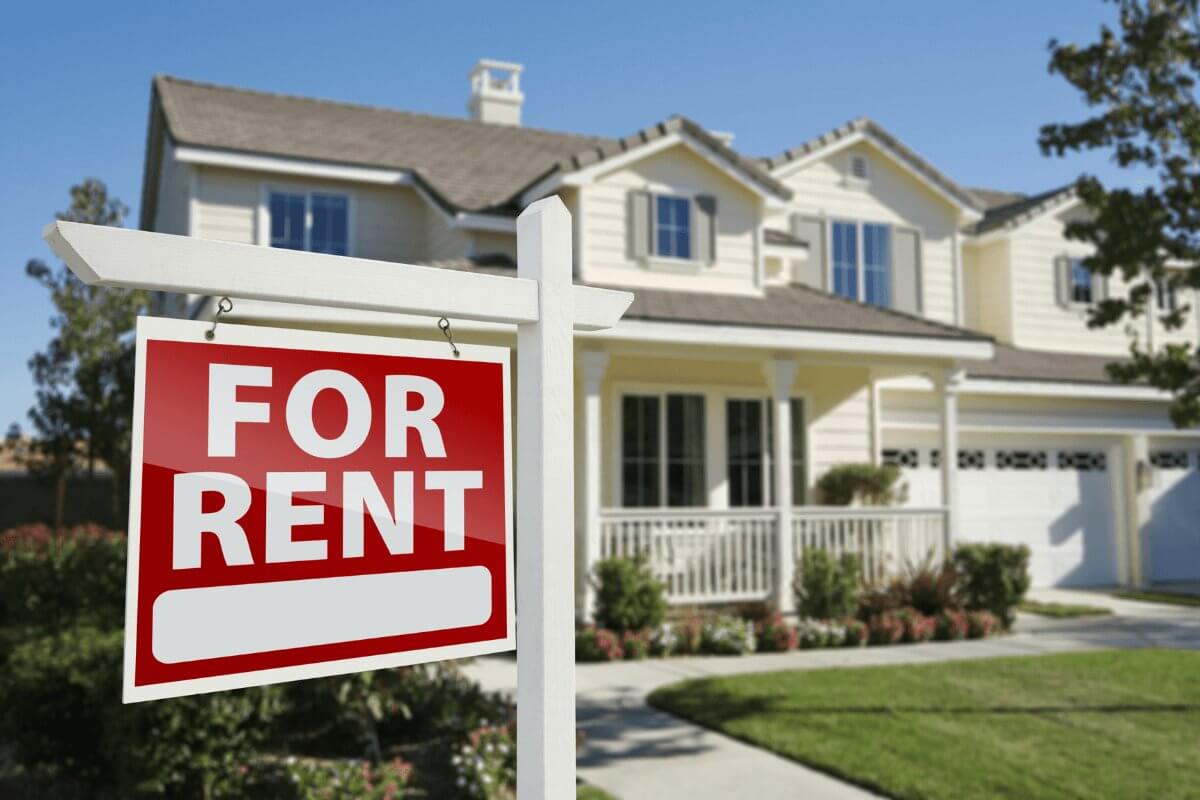If you are a landlord in Canada, then protecting your investment property is one of the things that should be at the top of your list. Landlord insurance is a policy designed to safeguard rented real estate from certain hazards. Whether you have one rental property or many, knowing what this insurance covers will save your bank account and your legal sanity. So, without any further delay, let us discuss landlord insurance Canada, its major benefits, and the reasons why, in this day and age, if rental properties are part of your investment strategy, insuring them needs to be as well.
A Brief Introduction to Landlord Insurance Canada
Landlord insurance Canada is a type of special property insurance that applies particularly to rental properties. This policy covers the landlord against any financial losses due to renting out the property. It covers a wide range of risks associated with letting out property that is not included in a standard homeowner’s insurance policy.
Property damage is one important point to keep in mind about this policy. This coverage applies to damages from perils such as fire, storms, and vandalism to the physical structure of the rental property. This means that expenses incurred during the repair or rebuilding process should be paid, especially to reduce the burden on the landlord’s pocket. A very critical part of landlord insurance is liability protection. It helps protect the landlord from legal and medical expenses if an individual gets hurt on a rental property.
In the event of damage to the rental property, the landlord must make repairs before it can be occupied again. Landlord insurance usually covers personal property left on the premises for tenant use, such as appliances and furniture. This can be important for landlords who offer furnished rentals.
How Is Landlord Insurance Different From Regular Homeowners Insurance?

Landlord and homeowner insurance protect property owners, but they serve different purposes and cover distinct risks. Understanding these differences is crucial for ensuring you have the right type of coverage for your needs.
Primary Residence vs Rental Property
Homeowners insurance is meant to protect your main residence, where you live. It covers the structure of the home and your personal belongings and provides liability coverage for incidents on the property. On the other hand, landlord insurance Canada is specifically designed for rental properties. It covers the building itself, provides liability protection for tenant injuries, and often includes coverage for loss of rental income.
-
- Coverage Scope: Homeowners insurance usually covers many personal belongings inside the home, such as furniture, electronics, clothing, and other items. On the other hand, landlord insurance is more focused on the structure of the rental property and any items owned by the landlord for the tenant to use.
- Income Protection: Landlord insurance is distinct from homeowners insurance because it covers lost rental income if a property becomes unusable due to a covered event, such as a fire or flood. This means the insurance compensates the landlord for the lost rental income during the repair period. Homeowners insurance usually does not offer this kind of coverage, as it is not intended for properties that generate rental income.
- Policy Costs: Given the risks involved, landlord insurance policies are more expensive than homeowners insurance. Rental properties are generally considered a higher risk due to tenant turnover and potential property misuse. Landlords do not actively participate in overseeing the daily care of the property.
What Does Landlord Insurance Canada Cover?
It offers the landlord or landlady complete protection against all the risks of renting their property. Landlord insurance will ensure that the landlord is financially covered against damage to the property, liability, and loss of rent.
Here is what is typically covered in a landlord insurance Canada policy–
Contents Coverage
Landlord insurance does not cover tenants’ personal belongings, but it does cover the landlord’s personal property left in the rental premises. This includes appliances, furniture, and maintenance equipment like lawnmowers and snow blowers.
Additional Structures
Landlord insurance Canada often extends coverage to additional structures on the property, such as garages, sheds, or fences. If a covered event damages these structures, the policy will cover the repair or replacement costs, ensuring that all aspects of the rental property are protected.
Optional Coverages
Landlords can choose to add extra coverage based on their requirements. This could involve protection from natural disasters like earthquakes or floods, which are usually not included in standard policies.
General Liability
One of the most essential parts of landlord insurance is comprehensive general liability coverage that protects against legal and financial dangers when owning or managing a home as a rented space. This can involve legal fees, court costs, and settlements if a tenant or visitor is injured on the property as a result of your negligence.
Aside from covering medical payments for injuries, this prevents minor disputes from becoming costly. The former also includes property damage liability if a tenant accidentally causes shopping centre insurance on their neighbours’ belongings. Some policies will even extend to advertising liability, protecting landlords from claims involving marketing practices. In addition to bodily injury and property damage, a general liability policy can cover legal issues such as wrongful eviction or discrimination lawsuits.
Property Damage
Property damage coverage of a landlord’s property insurance is mainly used to protect the physical structure of a rental property against various risks. It covers the physical structure of a building with its walls, floors, roofs, and all those essential fixtures, systems, equipment, or units therein, including, but not limited to, plumbing and electrical installations.
Personal Belongings On the Rental Property

Landlord insurance covers personal belongings left on the rental property, protecting items that landlords provide for tenant use. This insurance is important for landlords who furnish their rental units or provide essential maintenance equipment.
Coverage for Furnishings
If a landlord furnishes the rental property with sofas, beds, and dining tables, these belongings are protected under the landlord’s insurance policy. In the event of damage caused by covered perils like fire, theft, or vandalism, the insurance will cover the cost of repairing or replacing these items.
Maintenance Equipment
Landlords often provide maintenance equipment such as lawnmowers, snow blowers, and gardening tools, which are essential for property upkeep. This equipment can be costly to replace, making landlord insurance coverage crucial for protecting against theft or damage.
Appliances
Many rental properties have essential appliances like refrigerators, ovens, and washing machines. Landlord insurance covers these appliances if they are damaged or stolen. This coverage is crucial for maintaining the property’s habitability and ensuring tenants have access to necessary amenities.
Limited Coverage
It’s important to note that the landlord’s insurance policy covers only the landlord’s personal belongings left on the property. Tenant items are not covered under this policy. Landlords should encourage tenants to obtain renters’ insurance to protect their belongings.
How Much Does It Cost to Insure Rental Properties?
The cost of insuring rental properties varies based on several factors, including the location, type of property, and the coverage limits chosen. However, insurance policy rates can fluctuate and depend on several factors. It is important to keep track of any policy changes and updates.
For more information, get in touch with our relationship managers or log on to www.squareyards.ca.
What Are Some Factors Affecting Cost?
Some of the factors that affect pricing changes are listed below–
-
- Property Location– High-risk areas prone to natural disasters or high crime rates typically have higher premiums.
- Property Type and Size– Larger properties or those with additional structures may incur higher costs.
- Coverage Limits– Higher coverage limits for property damage, liability, and additional coverages increase the premium.
- Claims History– Landlords with frequent insurance claims might face higher rates.
- Deductibles– Higher deductibles can lower the premium but increase out-of-pocket costs during a claim.
Do Tenants Still Need Their Rental Insurance?
Tenants still need their rental insurance, even if the landlord is covered. Landlord insurance protects the building and the landlord’s liability, not the tenant’s. Renters insurance covers your personal belongings, like furniture, electronics, and clothes, in case of damage or theft. It also includes personal liability coverage if you accidentally cause damage or if someone gets hurt in your place.
Plus, if something happens that makes your rental unsuitable for living, renters’ insurance helps cover the cost of temporary housing. Many landlords require it as part of the lease, so it’s a good idea to have it for your own peace of mind.
What Is Not Included In Landlord Insurance Coverage?
While landlord insurance provides essential protection for rental property owners, it typically doesn’t cover certain things. Understanding these exclusions can help landlords avoid unexpected expenses and ensure adequate protection.
Personal Belongings of the Tenant
Landlord insurance does not cover the personal belongings of tenants. Items such as furniture, electronics, and clothing are not included. Tenants need their own renters’ insurance to protect their possessions.
Cost of Routine Maintenance
The landlord’s insurance policy does not cover normal wear and tear or routine maintenance issues. For instance, this expense would not be covered if a roof needed to be replaced due to old age. Landlords must budget for regular upkeep and repairs.
Intentional Damage
Damage intentionally caused by tenants, such as vandalism or deliberate destruction, is generally not covered unless the policy includes specific coverage for such incidents. This is why thorough tenant screening is crucial. The policy must specify what can and can’t be included in the renter’s insurance.
Vacant Property
Coverage may be limited or void if the property is vacant for an extended period, typically more than 30 to 60 days. Landlords should check their policy for specific terms regarding vacancies.
Natural Disasters
Standard landlord insurance often does not cover natural disasters like floods or earthquakes. Additional coverage or separate policies are needed to protect against these events.
Loss of Rental Income from Non-Covered Events
Rents lost due to the aforesaid covered events will be refunded if the tenant does not pay the rent or vacates a space without proper cause, which is not covered. In such cases, court interventions or security deposits could be called for.
Acts of War or Terrorism
Damage caused by acts of war or terrorism is typically excluded from standard landlord insurance policies, and special permissions are required for such coverage.
Wrapping It Up
It is important to understand what landlord insurance Canada is if one is to safeguard his or her investment when renting out property. This includes property damage, liability claims, and loss of rent; it ensures financial satisfaction and is free from the anxiety of being debited. However, it is not liable for the tenant’s personal belongings or everyday maintenance work. Still, it is rich in features that are necessary for the successful operation of rental businesses. Tenants also must provide insurance for their property and their liabilities. Comparing quotes and policies helps landlords find the right blend, ensuring appropriate coverage and effectively managing rental property in Canada.
Frequently Asked Questions (FAQs)
What does landlord insurance cover in Ontario?
Landlord insurance in Ontario covers property damage, liability claims, and loss of rental income. The policy also compensates for lost rental income if the property becomes uninhabitable due to a covered event.
What is tenant insurance in Canada?
Tenant insurance, also known as renters' insurance, protects tenants’ personal belongings and provides liability coverage.
Do I need insurance to rent in Ontario?
Tenant insurance isn't legally required in Ontario, but many landlords include it in the lease.
Can a landlord ask for proof of insurance in Ontario?
Yes, in Ontario, a landlord can request proof of insurance. Many lease agreements require tenants to get renters' insurance to protect their belongings and avoid risks for tenants and property owners.
How much is landlord insurance in British Columbia?
To find the best landlord insurance quote, several providers can assist in obtaining preferred rates.



































